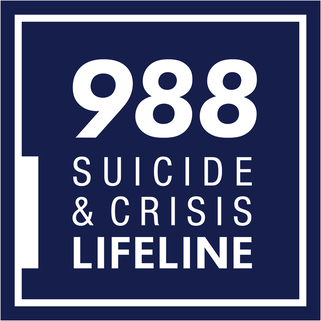|
As the fall days turn into winter months, the days shorten, the air turns colder, and the sun seems to disappear for months at a time, especially in the Midwest. For some, this lack of sunshine can make the days seem to last forever. Some of us are more sensitive to these darker days and can feel our energy drain and our mood dampen. It’s not uncommon to feel a little less energetic and a little more down during the colder months and develop the so-called “winter blues”. However, if you are among the approximately 5% of people who develop clinical depression during the darker and colder winter months, you likely experience many more symptoms and have a much harder time functioning. Some of the signs to look for to let you know that you may be experiencing seasonal depression include worsening mood during the fall and winter, lower energy levels during this time, difficulty focusing and concentrating while feeling down, changes in sleep (either sleeping more or difficulty sleeping) in the fall and winter, changes in hunger (either eating more or eating less) in the colder months, less interest in doing things that normally would bring you joy during the darker days, feeling worthless or having lots of negative thoughts and feeling guilty about things that you have no control over during these winter months, being less motivated or more agitated during the fall and winter, and/or having thoughts of death or dying during these less sunny days. If you have a majority of these symptoms, you likely have clinical seasonal depression and should talk to a professional about it. Unfortunately, we don’t know exactly why seasonal depression happens. There are a few different theories about it, however. Some ideas include a change in the way your body regulates serotonin during the winter months. Serotonin is one of the chemicals in the brain that create feelings of positivity and when that chemical is disrupted, we can feel down or agitated. Another theory about seasonal depression is that when it is dark outside more than usual our brains continue to produce melatonin during the day. Melatonin is normally a hormone that makes us sleepy at night, and if we don’t stop making it, we will feel sleepy and tired throughout the day. And research also shows us that too much melatonin can create feelings of depression. As you can imagine, being inside more, possibly eating more, being less active, maybe sleeping more, and seeing other people less often during the winter months can also have a negative impact on our moods. But the good news is that we can do things proactively to help decrease seasonal depression (or just the winter blues), and there are treatments for it.
If you know you are affected by the winter blues or seasonal depression, try one or all of these suggestions. Have a talk with your healthcare provider. Recognizing the signs of depression early is the key to feeling better faster. The earlier you implement these strategies and if you practice them consistently, the more likely they are to work. The team at Providers for Healthy Living is here to help if you need it! We offer a wide range of therapy and medication management services for depression, anxiety, and many other mental health diagnoses. If you find that you need more intensive help this winter, reach out to us. We can help. Register as a new patient on our website if you are interested in receiving assistance. If you need immediate help, the National Suicide Prevention Lifeline is always available at 800-273-8255. Photo: www.dreamstime.com/seasonal-affective-disorder-sad-depression-winter-season-anxious-alone-young-girl-feeling-lonely-stress-anxiety-seasonal-affective-image194675560
2 Comments
Laura Butler
12/7/2020 01:58:15 pm
I would imagine this also affects adolescents, correct? Any resources that are specific to this topic for 10-14yr olds?
Reply
9/6/2023 08:39:34 am
It’s truly a great and helpful piece of info. I am happy that you<br>just shared <a href="https://www.techfiver.com/the-best-mental-health-apps-to-fight-depression-and-anxiety">this useful info with us</a>. Please stay us up to date<br>like this. Thanks for sharing.
Reply
Leave a Reply. |
|
Please DO NOT use this email address for medication refill requests or for emergency situations.
Click here for refill requests instead of using email: Medication Refill Request Form If you have a medical emergency, email is never the appropriate way to communicate your needs, and you should instead call 911 or go to the nearest ER. If you are having suicidal thoughts and need to speak to someone immediately, you can contact Suicide Prevention Hotline at the number (and link) below. [email protected]
Communications via email are not secure. Although it is unlikely, there is a possibility that the information you include in an email can be intercepted and read by other parties besides the person to whom it is addressed. |
|
2024 Providers for Healthy Living | All Rights Reserved
|


